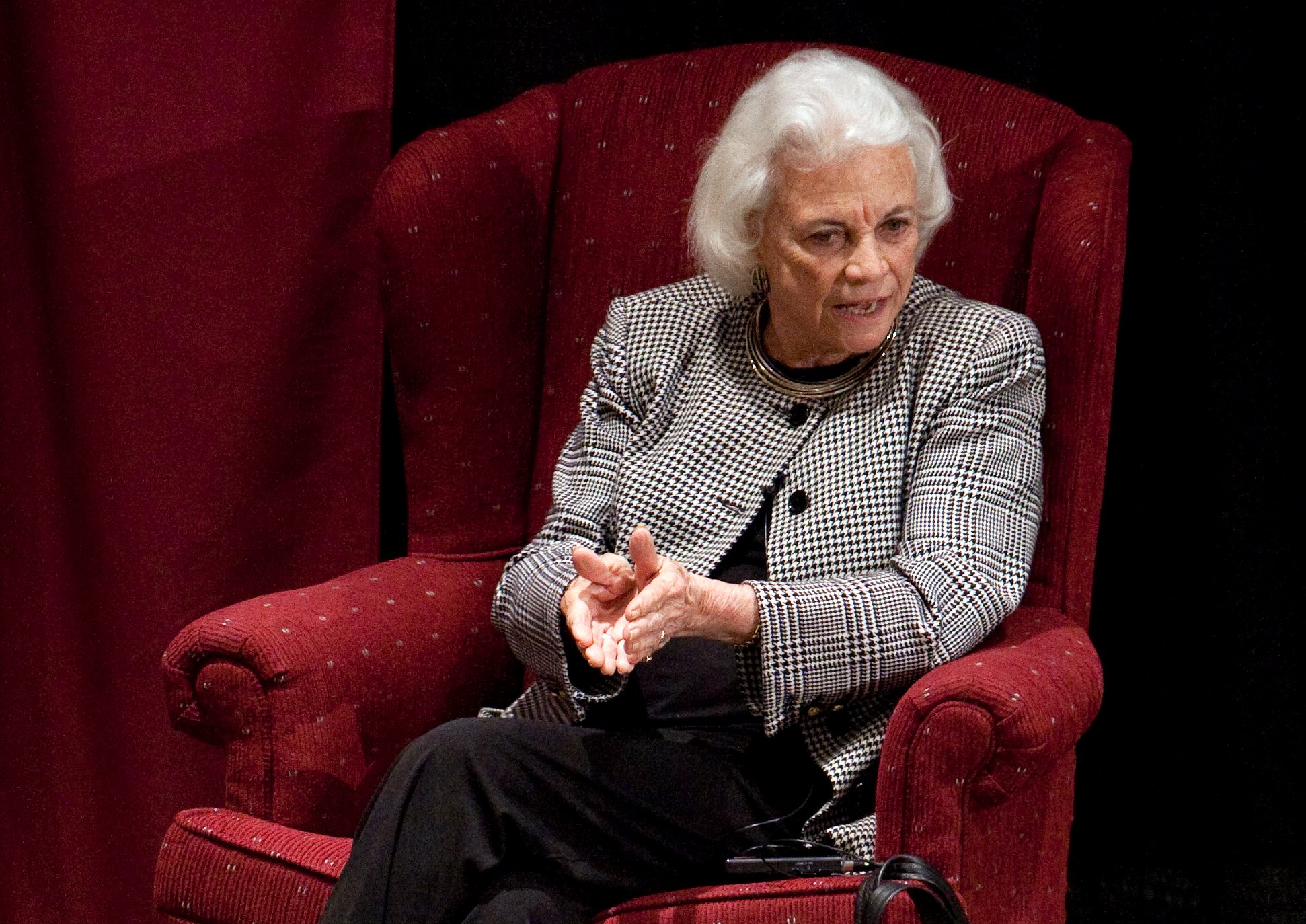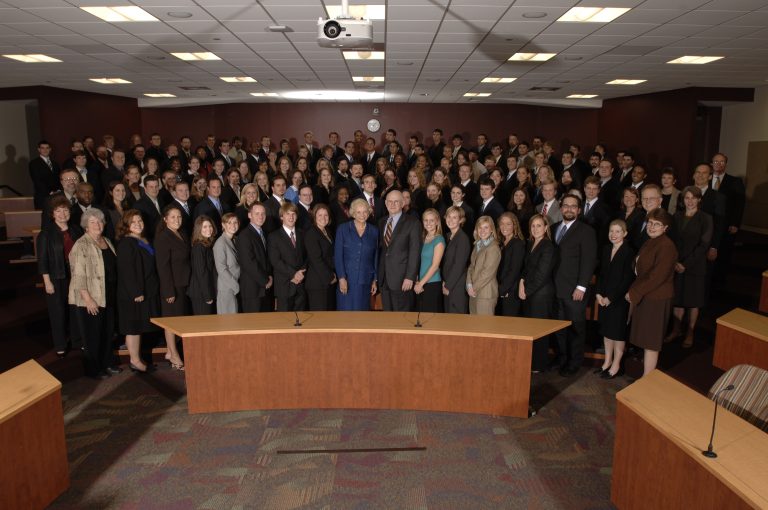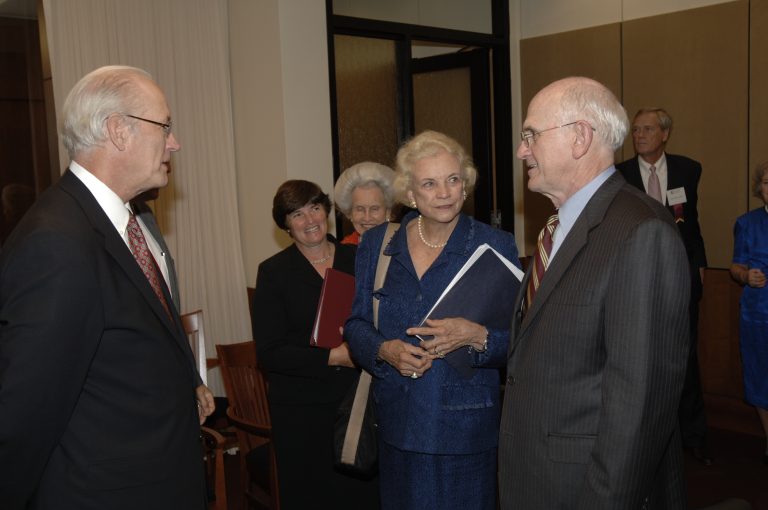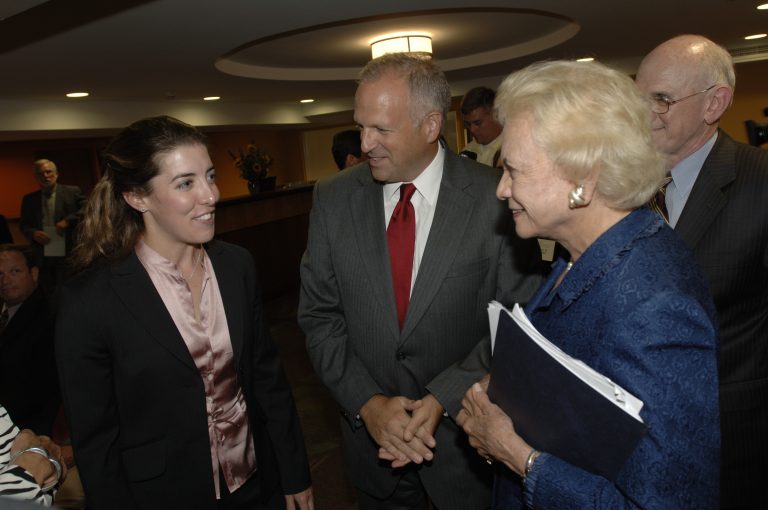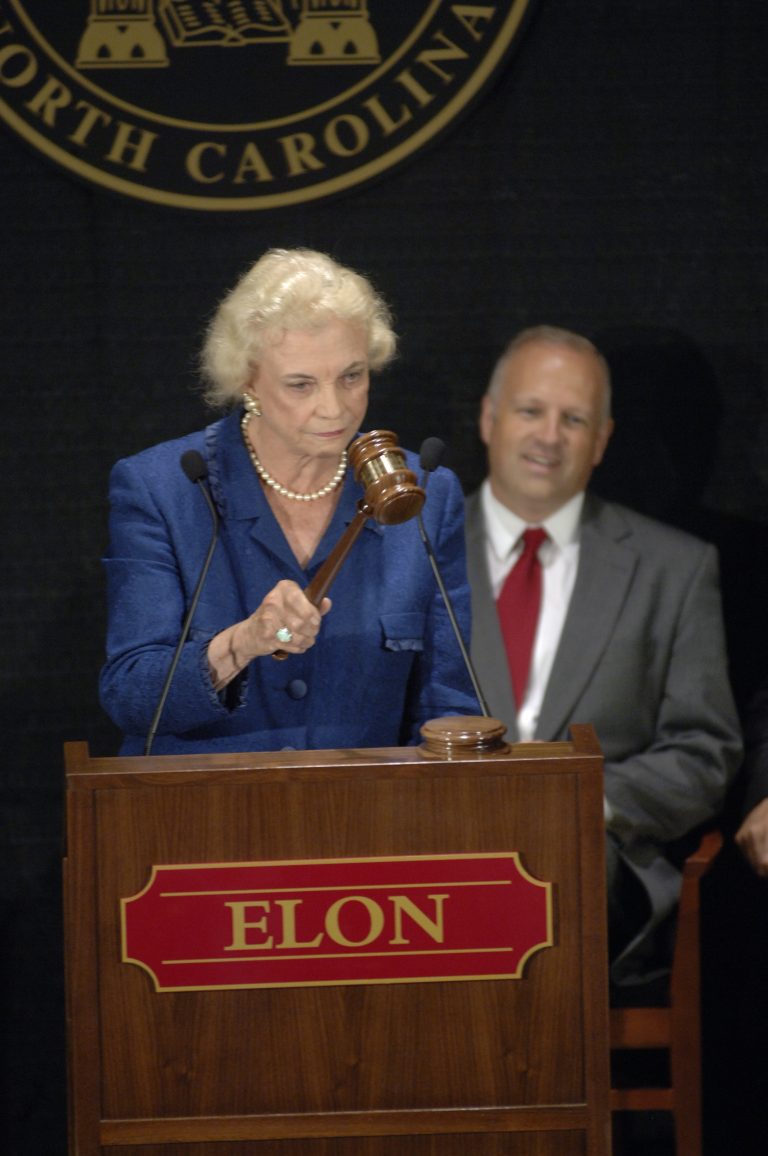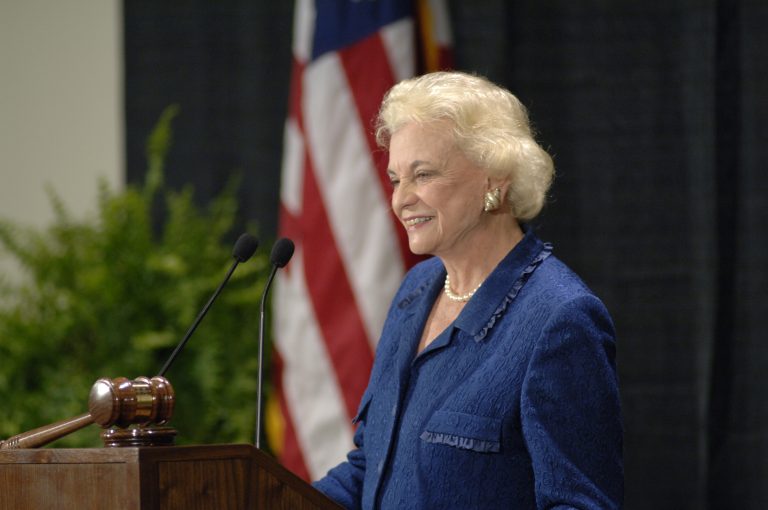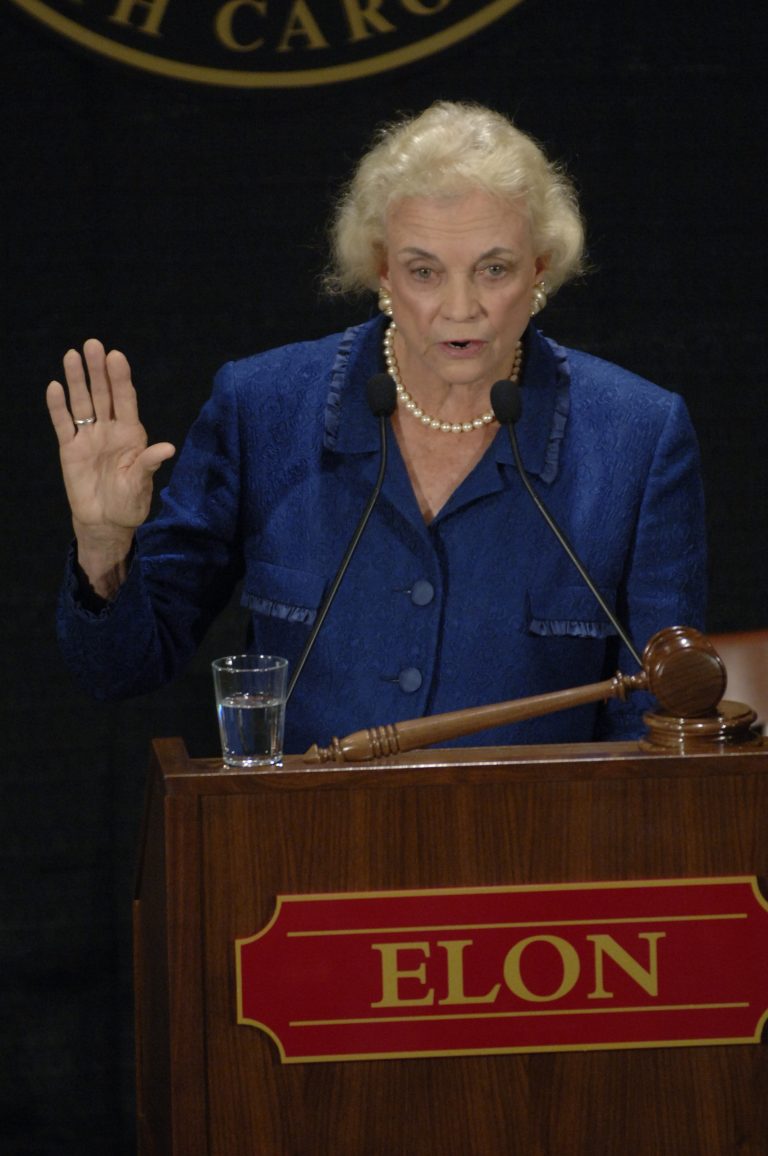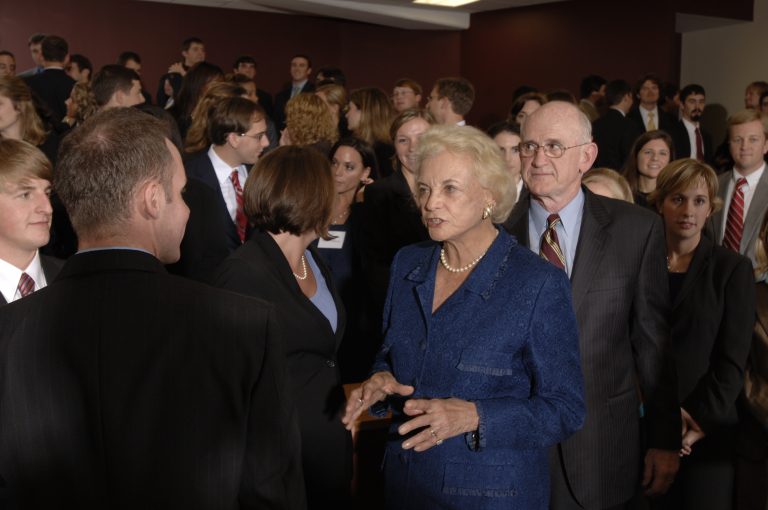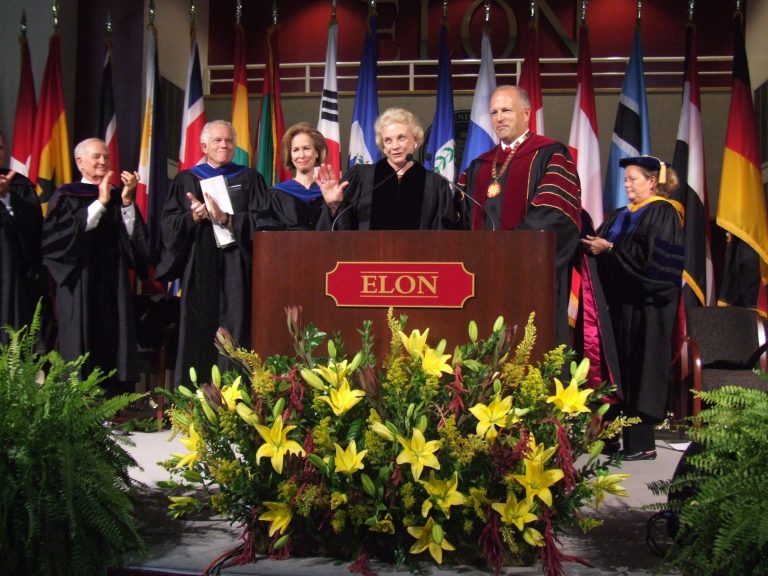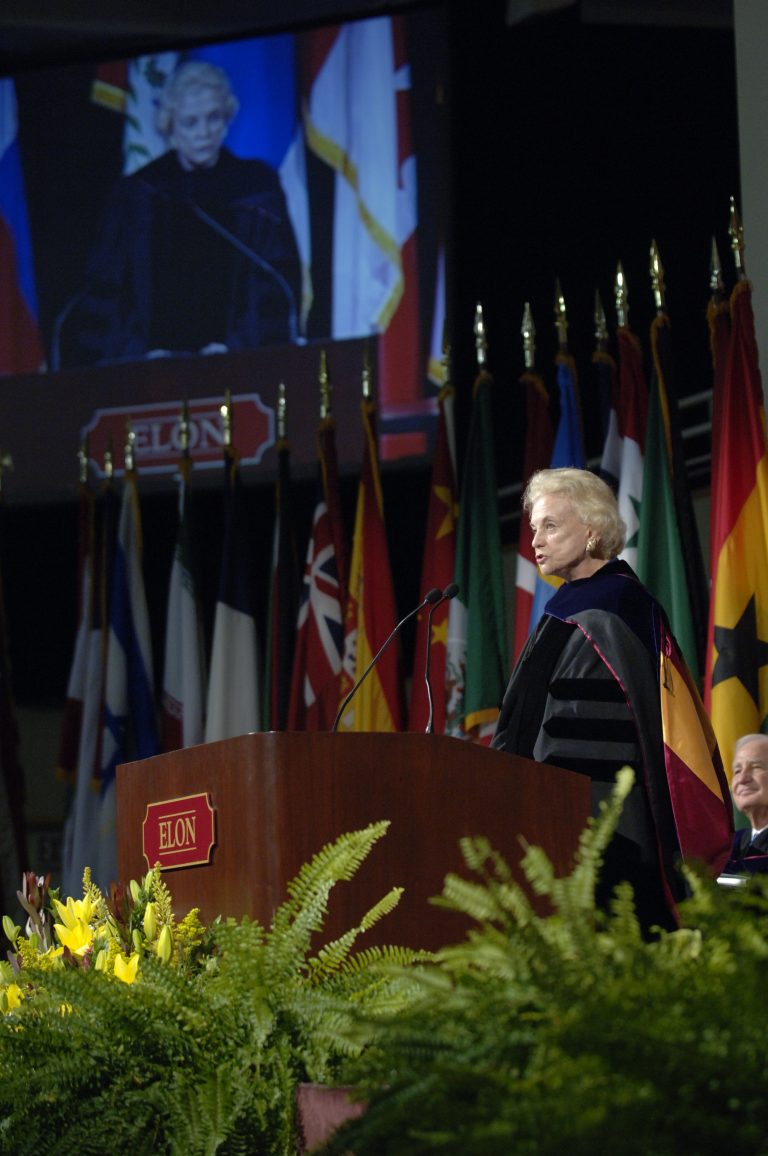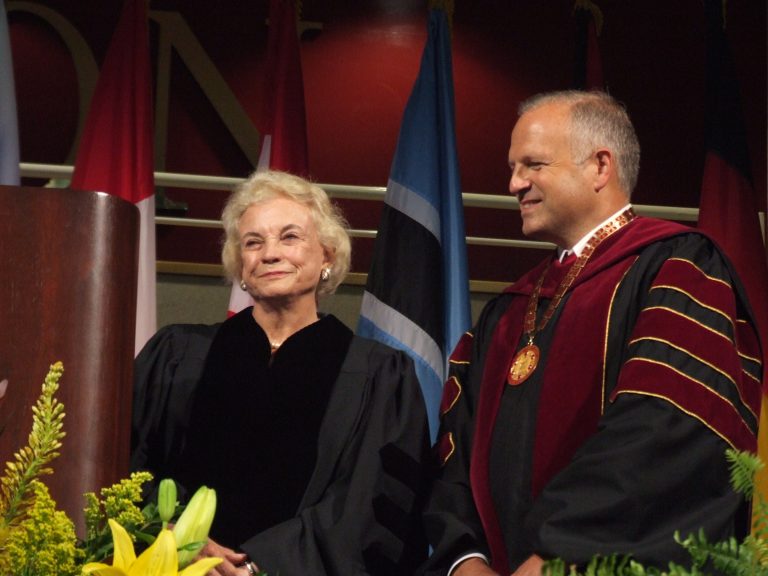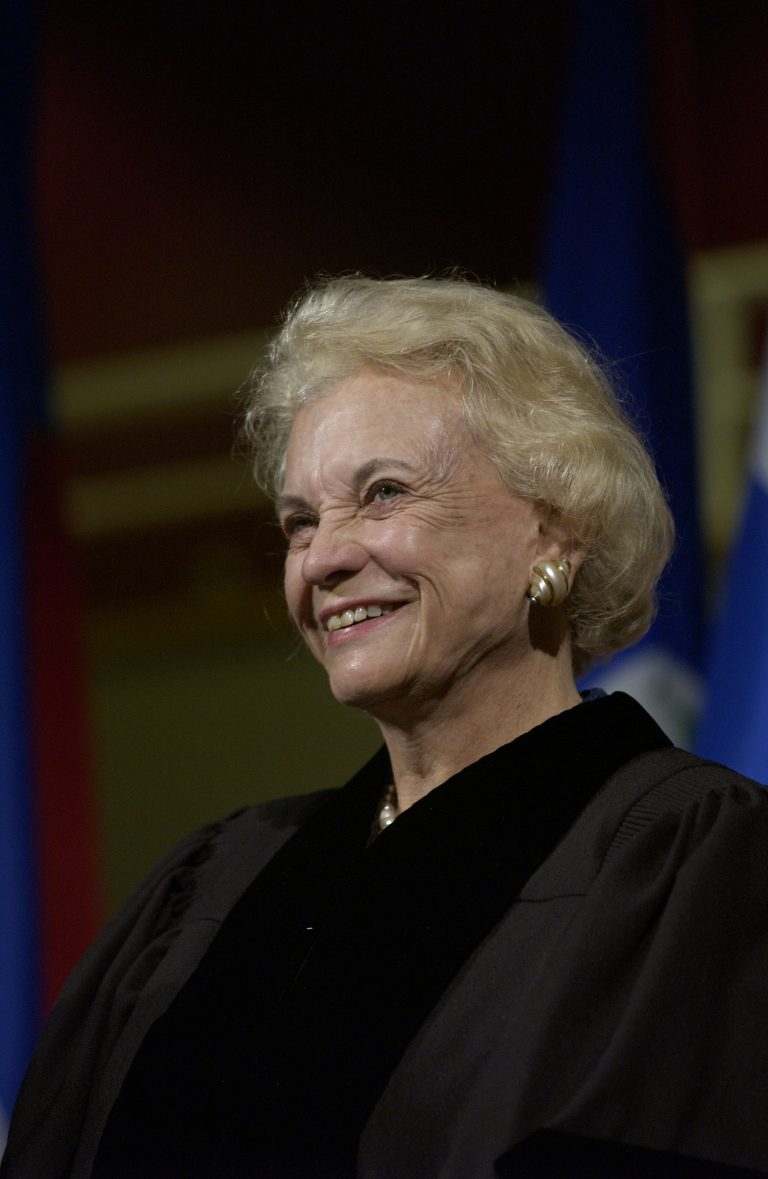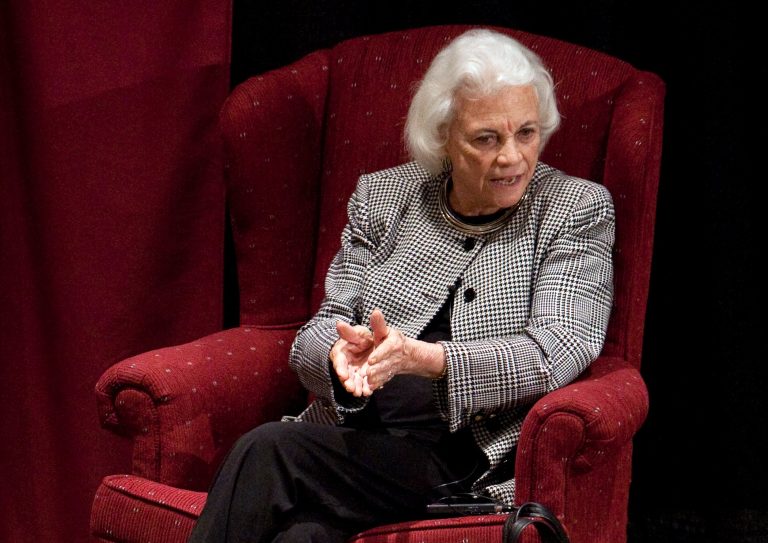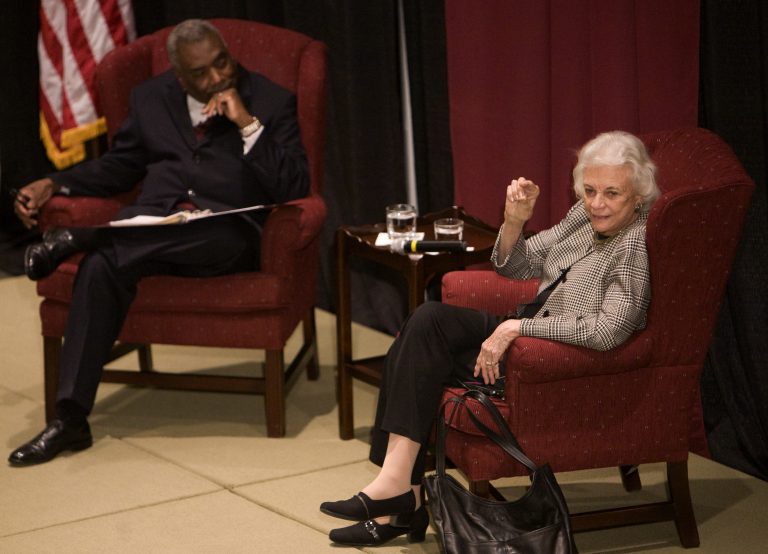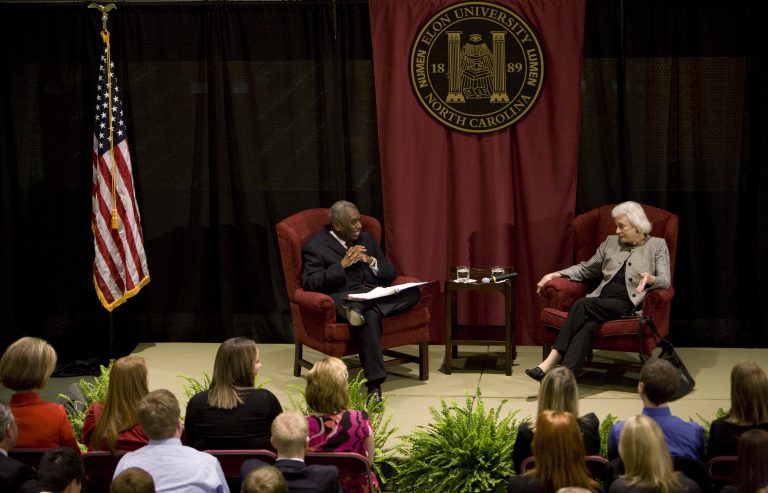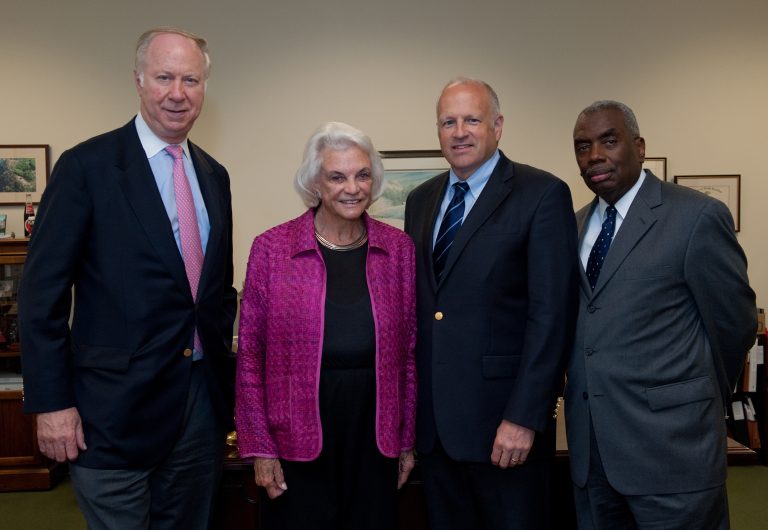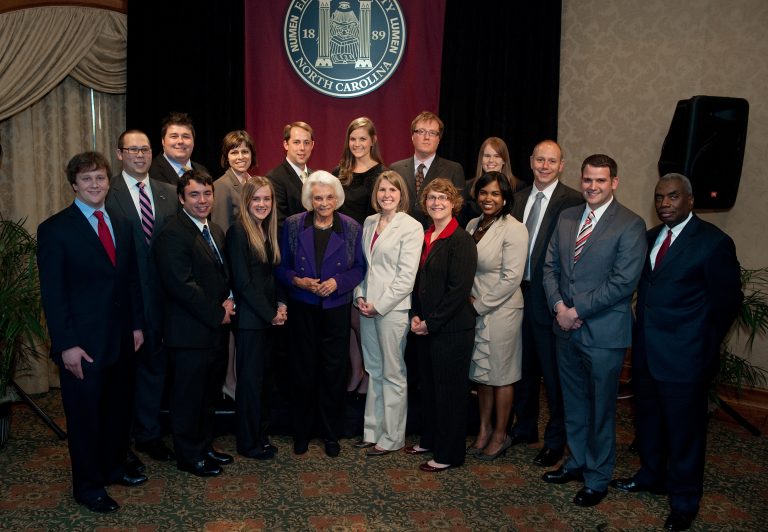The trailblazing legal figure had a special connection to Elon and dedicated its law school in 2006.
Retired U.S. Supreme Court Justice Sandra Day O’Connor, who died Dec. 1 at the age of 93, was closely connected to Elon University and many of its senior leaders. She banged the gavel at ceremonies formally dedicating Elon University School of Law in 2006 and returned in 2010 and 2012 to speak with students as they prepared for their careers as lawyers.
“Justice O’Connor was a towering legal leader in our nation who took a special interest in Elon University and our students,” said President Connie Book. “She inspired us at the law school’s dedication and challenged the charter class to always be ‘mindful of the moral and social aspects of the lawyer’s position as an officer of the court.’ In subsequent visits to the school, she tackled many substantive legal issues and loved engaging with students and making them think deeply about complex questions. Her influence will be forever engrained in the culture of Elon University and in the work of the students she touched.”
O’Connor recognized the potential of Elon’s innovative law school in her 2006 dedication remarks. “It’s quite clear that Elon Law is already a force with which to be reckoned,” O’Connor said. “You have created a marvelous law school facility here. It’s equipped to meet the demands of contemporary legal education. You have an operative courtroom with a real live judge sitting in it … and you have electronic everything at your fingertips.”
She then asked students to protect and promote the U.S. system of checks and balances. “Judicial independence is a bedrock value of American government,” O’Connor said. “Unfortunately, its value is a lesson that some of our current leaders may not have learned. Judicial independence doesn’t happen all by itself. It’s very hard to create. It’s easier than most people imagine to destroy and we have to be vigilant against those who would strong-arm the judiciary.”
President Emeritus Leo M. Lambert recalls an informal talk O’Connor gave to Elon law students. “She spoke about the importance of civil and positive human relationships across political difference,” Lambert says. “From her experience as an Arizona senator, she reflected on how relationships built through conversations at Little League games and compromise achieved over a beer or informal dinners in each others’ homes was critical to governing. I believe she would be greatly disappointed about how much the political landscape has worsened in this regard in the last 15 years and how dangerous the current toxicity is to our republic.”
“Justice O’Connor was the model of a lawyer-servant, dedicating her life and work to civility, civics and the rule of law,” said Dean Zak Kramer, who joined the Elon Law administration having served as an administrator and professor for many years at Arizona State University’s Sandra Day O’Connor College of Law. “We strive to train attorneys who will take up her call to become civic leaders and, in her words, ‘make a difference in a real sense.’ I can think of no better person to have formally dedicated Elon University School of Law in our earliest days of educating a new generation of legal leaders.”

Following the law school dedication in Greensboro, O’Connor traveled to main campus to speak at Elon’s fall convocation. She recalled her early career and her struggles to get a start in the male-dominated legal profession of the 1950s. She said she had only one job offer – a position as a legal secretary – after graduating near the top of her law class at Stanford University in 1952.
Eventually, she landed a job as a deputy county attorney in San Mateo, California. Though it was not the job she envisioned when she graduated from law school, O’Connor said she was determined to make the best of it.
“I soon learned that I had more fun at my job than my classmates did at theirs,” said O’Connor, who later served as a civilian lawyer in Germany, assistant attorney general in Arizona, a superior court judge and on the Arizona Court of Appeals. “Every step of the way, I felt the joy of doing something right for the public good.”
O’Connor explained the importance of service, telling the audience that, “Ours is a nation built on pride and sacrifice, on the willingness of our citizens to give of themselves for the whole. We are the nation we are today because these bridge builders gave of themselves out of necessity.”
In a 2010 law school forum with Dean George R. Johnson Jr., O’Connor urged greater attention to civics education in public schools, highlighting her initiative, Our Courts, which teaches middle school students about the three branches of government and the role of the judiciary.

“We know that, according to the Annenberg Public Policy Institute, nearly one third of Americans cannot name the three branches of government, much less say what they do,” O’Connor said. “Now imagine that. That’s incredible. They can name two out of the three of the Three Stooges any time you ask, but they can’t name a justice on the U.S. Supreme Court. I mean, it’s pathetic.”
Elon established the Sandra Day O’Connor Professorship at Elon Law in 2007 and her image is part of the artwork included in the law school’s diploma portfolios.



